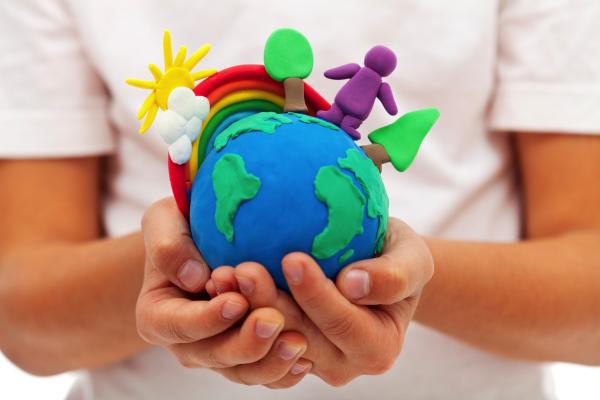The Great War that engulfed Europe from 1914-1918 was a bitter disappointment for the peace movement. As the 19th century came to a close, the promise of progress that accompanied Darwin’s discovery of the evolution of life on earth seemed to put peace within our grasp. “Progress” was the popular byword and always meant a movement toward something better. It was the age of invention and industrialization. Human beings were overflowing with strategies to improve the lives of the poor, the uneducated, the working class, and the least and the last among us. The women’s rights movement was flourishing as well, and Dr. Maria Montessori, the first woman in Italy to receive a medical degree (1896) was an outspoken and popular representative of the cause. But 1914 dashed all that hope.
Many are the disappointments in the world today, as well, if your goal is peace. We are witnessing the greatest number of people displaced by violence and war since the second Great War in Europe. Even so, much progress has also been made by movements advocating for the rights of groups excluded from privilege and power. Women, labor, the disabled, LGBTQ, the poor, and the sick have all witnessed their rights expand. And yet war continues. We are living in the best of times and the worst of times, it seems — a paradox that causes many of us to careen between hope and despair, unsure of how to move beyond the motion sickness.
But the answer is right in front of us, as close as the tiny hand reaching up to hold ours. Dr. Montessori explains in The Child in the Church that if we did reimagine our “national interest” as child centered or aligned our policies with what was best for children,
Then civilization would not develop exclusively from the point of view of what is convenient and useful for adult life. Today progress is sought for, too much and too exclusively, through adult qualities. Thus civilization is based on the triumph of force, on violent conquest, on adaptation, on the struggle for existence and the survival of conquerors… in the construction of society something – some essential element – has been missing… The child has almost disappeared from the thoughts of the adult world, and the adults live too much as though there were no children who have the right to influence them.
It’s strange to our way of thinking, that children should influence us and not the other way around. But it’s what Jesus advocated. He taught us that the kingdom of God belongs to the little ones and that if we want to enter, we need to become like them. Becoming like them begins with privileging the rights of children over our own, whether we are women or men or laborers or sick or poor, powerful or powerless.
Before we make any domestic policy decision on health care, defense budgets, economics, education, criminal justice, policing, gun policy — whatever the issue, we must ask how it will affect the children, and let the answer become the policy. And in international relations if we considered the impact on children before we negotiate agreements on weapons, trade, or immigration, before we launch an invasion, orchestrate a coup, drop a bomb, or authorize murder by drone, how different our actions would be. We would be less violent and more peaceful actors in the world. Not only would the world be safer for children, it would be safer for us all. The age of peace will be the age of the child.
My two-year-old granddaughter likes to ask her mom, “Where are we going next?” Perhaps that’s a bigger question than she knows — one that deserves our best answer.
Got something to say about what you're reading? We value your feedback!

